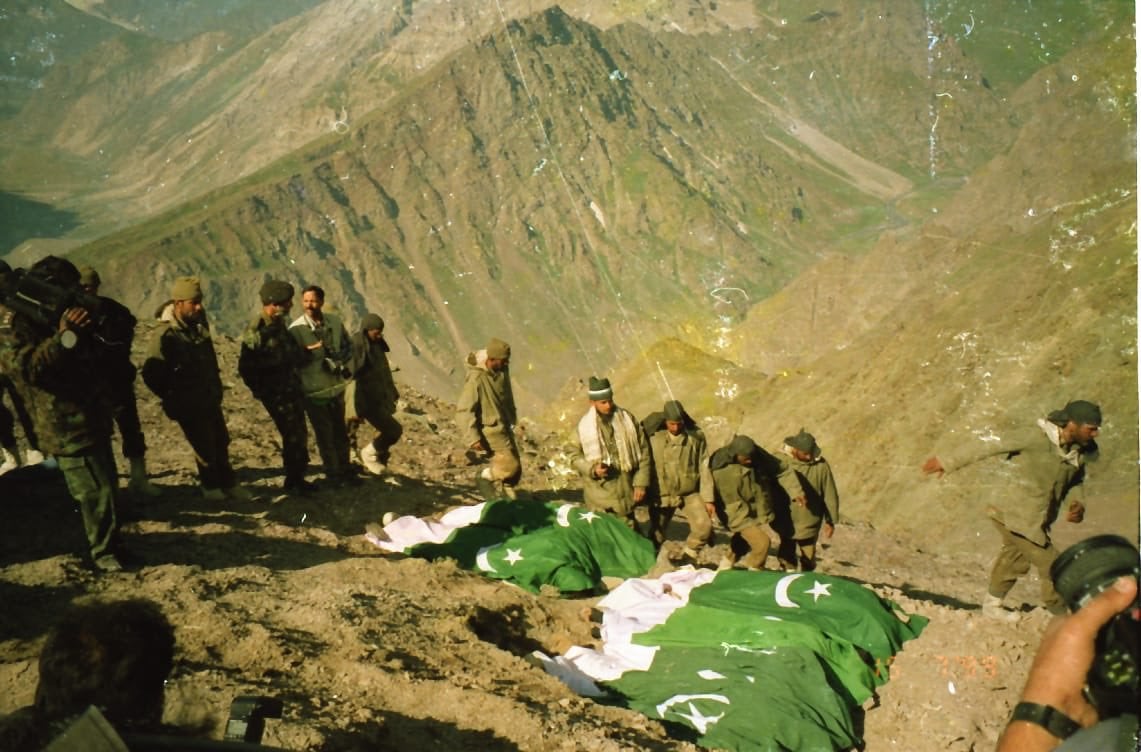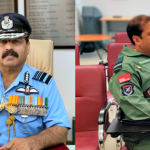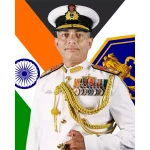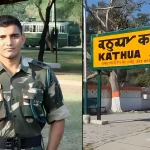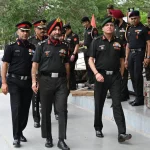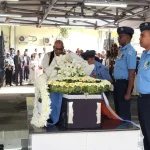It has been a week since the Indian Army foiled a cross border commando operation attempted by the Pakistani Army’s elite Special Services Group (SSG). Around 5-7 of Pakistan’s special operations soldiers were killed during the incursion attempt. The Pakistani Army refused to claim their fallen soldiers, despite India’s XV Corps commander Lieutenant General KJS Dhillion, offering Pakistans Director General of Military Operations an opportunity to take back their men, from the Indian side.
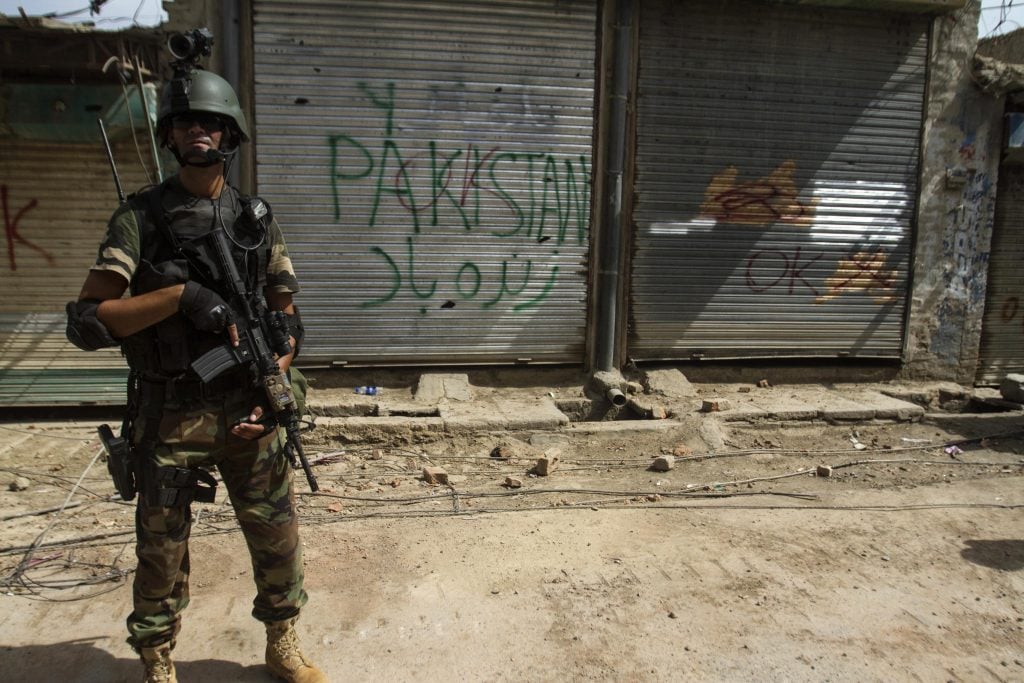
Shame Old Story!
Islamabad’s refusal to acknowledge the sacrifices of their troops sent to fight their countries war is nothing new. The country’s demeanour had been this way since their misadventure in Kargil two decades ago. The Pakistani Army had disavowed their soldiers and officers from the Northern light infantry, who had captured Indian posts. These infantry soldiers were acting upon the orders of the Pakistani Army’s top brass, General Pervez Musharaff and his top three. Their government repaid them by repeatedly denying that they were soldiers. Islamabad defended their stance at international forums, stating that the infiltrators in question were ‘mujahideen’ ‘terrorists’ not soldiers from the Regular Army, despite being presented with overwhelming evidence claiming otherwise.
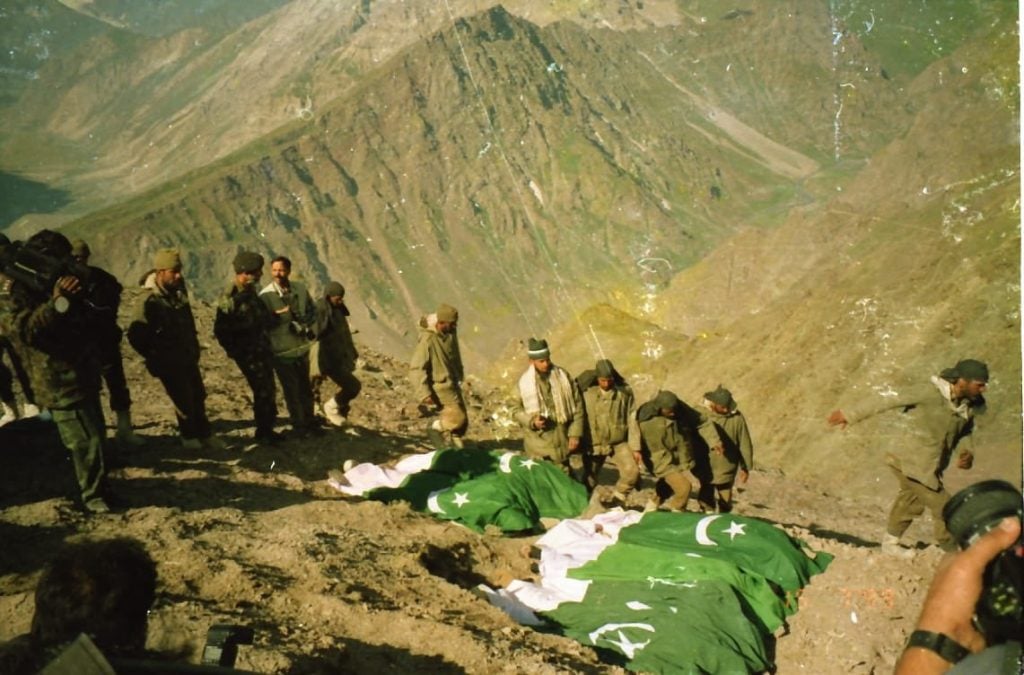
The Indian government had shown the International bodies the recovered Pakistani military ID’s and Ordnance factory marked weapons issued to the Pakistan army. The personal diary’s recovered from Pakistani soldiers highlighted their struggles, aspirations, and the harsh conditions in which the Pakistani soldiers were deployed. The Pakistan government maintained its stance of denying their soldiers were involved. It was the Indian Forces, who out of professional courtesy and respect towards their adversary had to bury the Pakistani soldiers with full military honours, while their own country claimed they were not their soldiers.

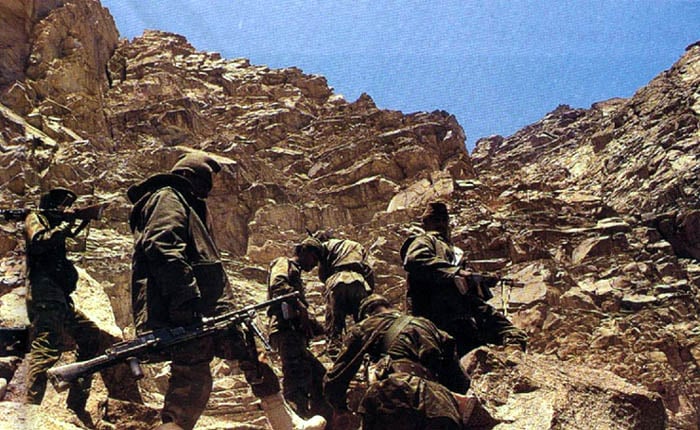
So, Why Does Pakistan Not Acknowledge Their Dead?
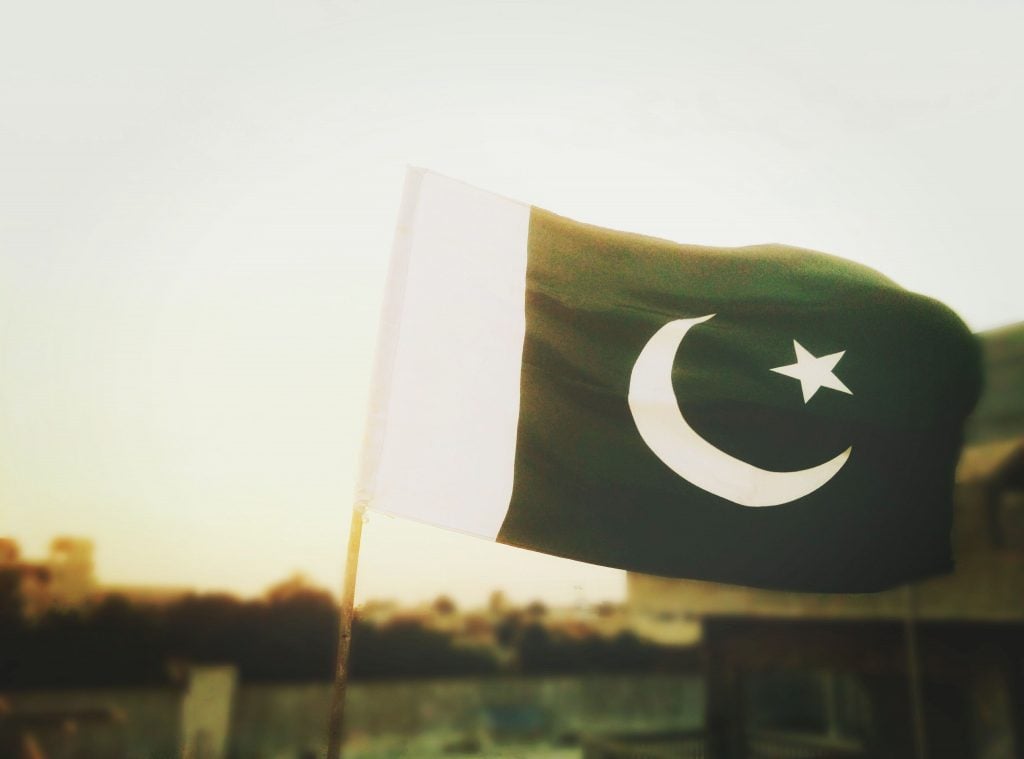
The reasons for Pakistans refusal to acknowledge the sacrifices of their military personnel are multifaceted, they deeply rooted in the creation and functioning of Pakistan.
Plausible Deniability
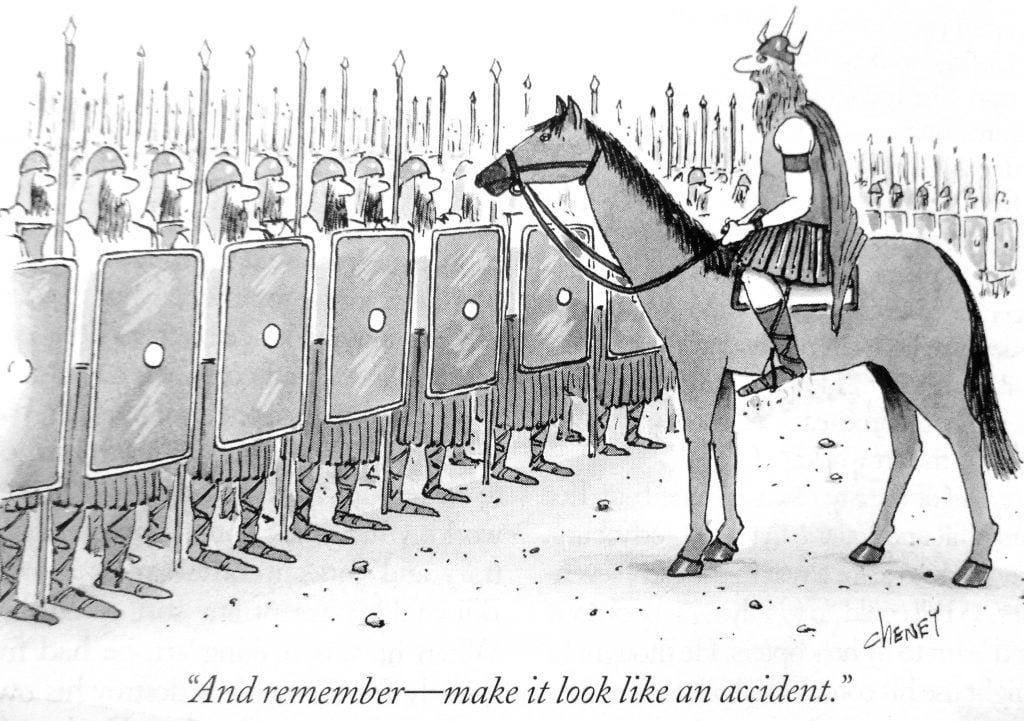
No country is legally justified to cross the recognised boundaries of a sovereign state to carry out cross border strikes on their military personnel. Despite legality, the Pakistani establishment has repeatedly, sent their Special forces personnel to conduct shallow incursions into Indian territory, trying to provoke an Indian response. To further Islamabad’s nefarious designs, the Pakistani security establishment has conceived a dedicated guerilla outfit known as the Border Action Team (BAT). The team has been specially trained to carry out illegal cross border operations on Indian soil.
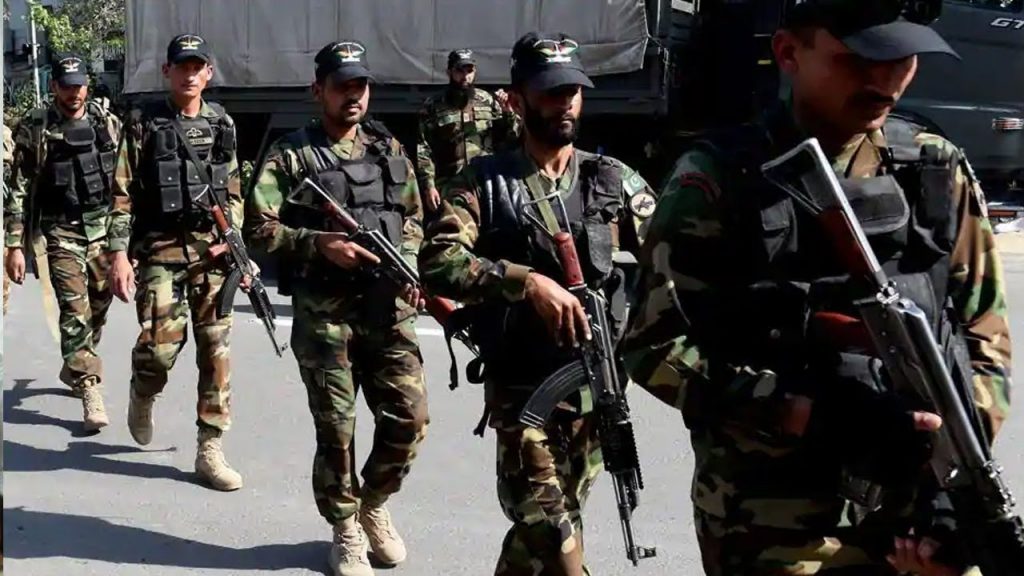
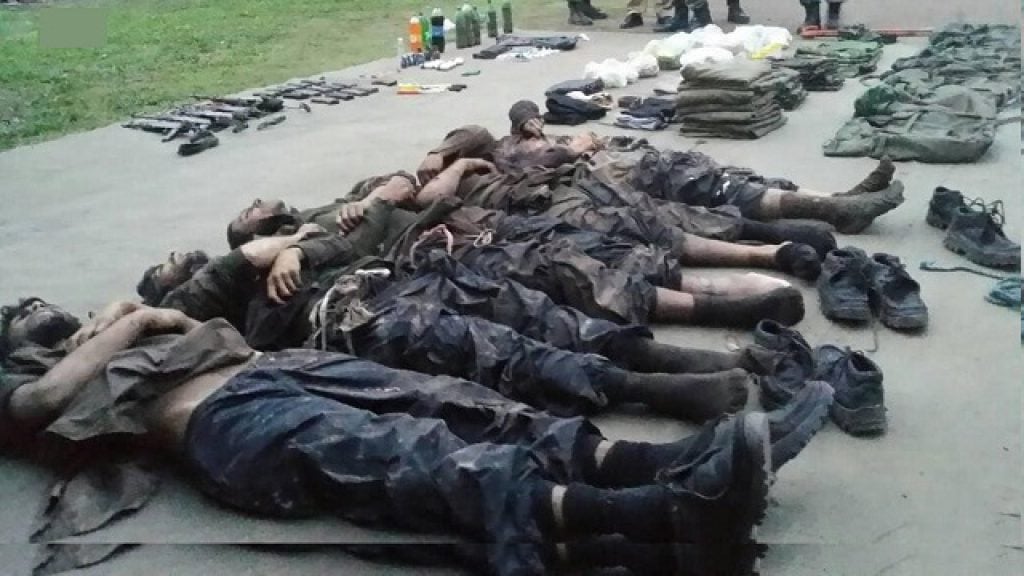
These illegal BAT teams comprise a mix of Pakistani Special operations soldiers from their SSG units and Pakistan sponsored terrorists. These teams have a notorious history of beheading and mutilating soldiers from the Indian Army, and the Border Security Force (BSF) deployed along the Line of Control (LOC). Such crude tactics are employed as a way of waging psychological warfare, diminishing the morale of the troops.
Mutilations and Beheadings of Indian Troops by BAT personnel and Pak Rangers
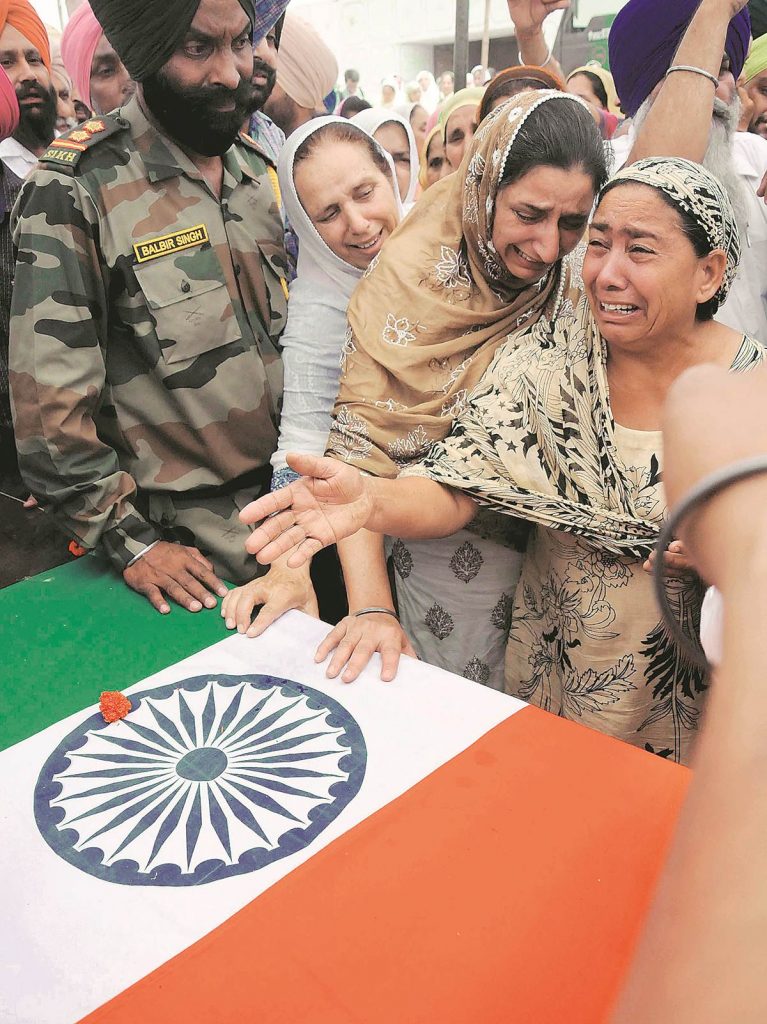
- In September 2018, Pakistani military personnel slit the throat and proceeded to gouge the eyes out of 50-year-old BSF constable Narender Singh. The mutilation occurred while the Constable Singh had gone to cut wild elephant grass along the International Boundry.
- In May 2017 Naib Subedar Paramjit Singh and BSF head constable Prem Sagar were beheaded by Pakistani Special Forces at the Krishna Ghatalong the line of control
- On June 22, 2017, Pakistani Special forces commandos had entered 600 metres inside the LOC in a forward area at the Poonch sector, with the purpose of beheading Indian soldiers. The Pakistani commandos were armed with specialised daggers to ensure a swift beheading and an action camera to record a video of the mutilation for propaganda purposes. This attempt was foiled by the Indian army, however, two Indian army soldiers lost their lives in the ensuing gun battle.
- In 2016 Pakistani Special Forces mutilated and Killed an Indian army soldier at the Machil sector near the LoC.
- In 2008, a soldier of 2/8 Gorkha Rifles was captured by BAT and was beheaded after a few days.
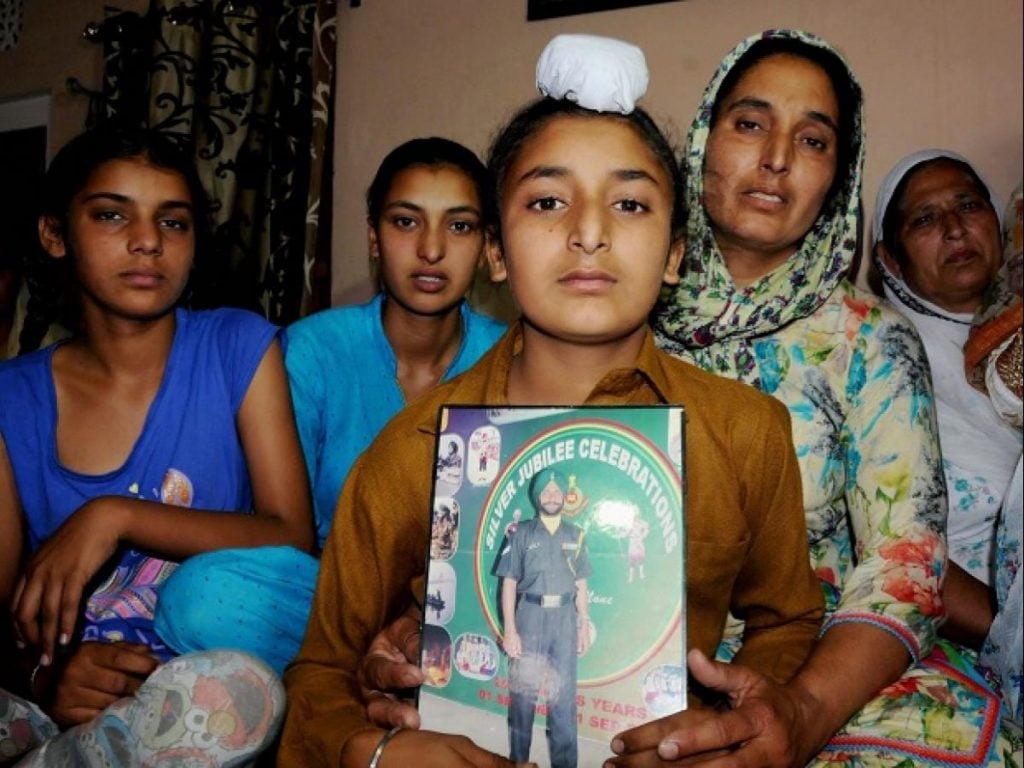
Given the nature of the gruesome tactics employed by the BAT teams and Pakistani rangers, amounting to war crimes, and in complete violation of the Geneva Conventions to which Pakistan is a signatory. Islamabad cannot be associated with these actions. Therefore the country’s creation of BAT to operate as a deniable guerrilla force designed to cripple the enemy’s morale.
Propaganda State

According to former Pakistani ambassador Hussain Haqqani “Pakistani is a national security state” built on the “Idea of Muslim superiority.” The military is the only functional institution in Pakistan and therefore must always be projected as supreme and invincible. It is for this simple reason that the Pakistani media is not allowed to highlight media casualties. State-sponsored propaganda is rampant in Pakistan, to the point where the people breath into everything the government wants them to believe. They are convinced of their own fabricated history. Generations of Pakistanis have been systematically indoctrinated into believing the army’s claims of having crushed in every major conflict.
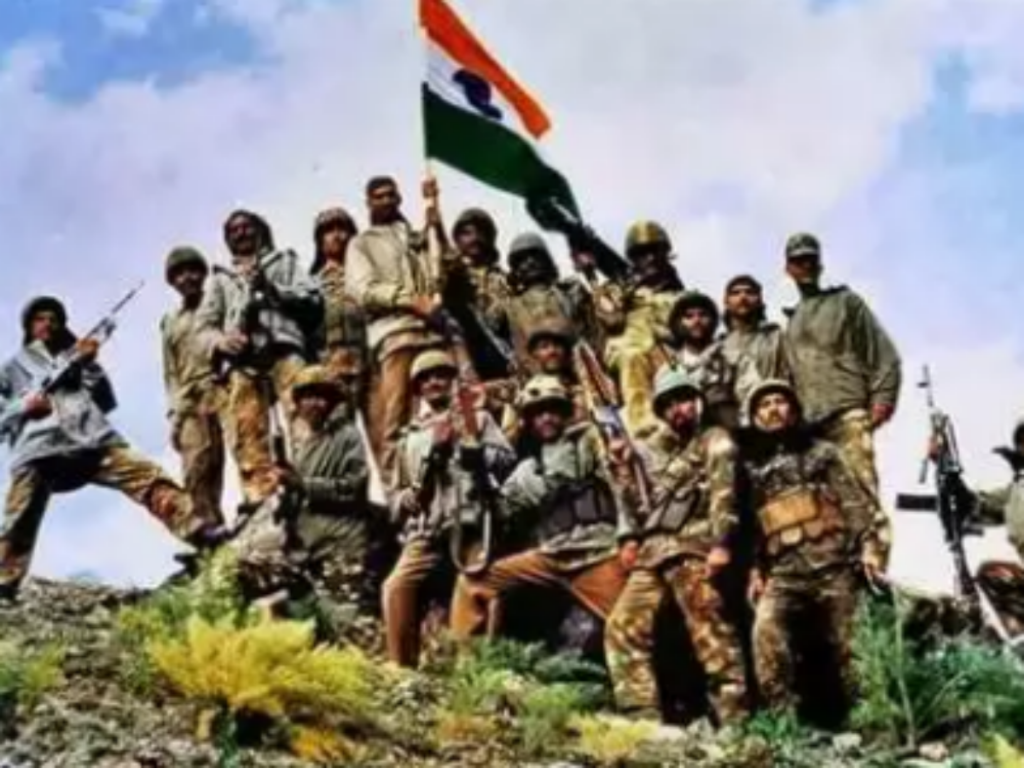
For instance, the Pakistan Army signed the instrument of surrender in 1971, a conflict in which a new state was carved out of the country, and 93,000 Pakistani soldiers were taken in as Prisoners of War (POW) by the Indian Army. This has been an internationally documented fact. Despite being a part of recorded military history, Pakistan has managed to convince the majority of its people that they had won that war. Such is the potency false narratives repeated for generations to their people
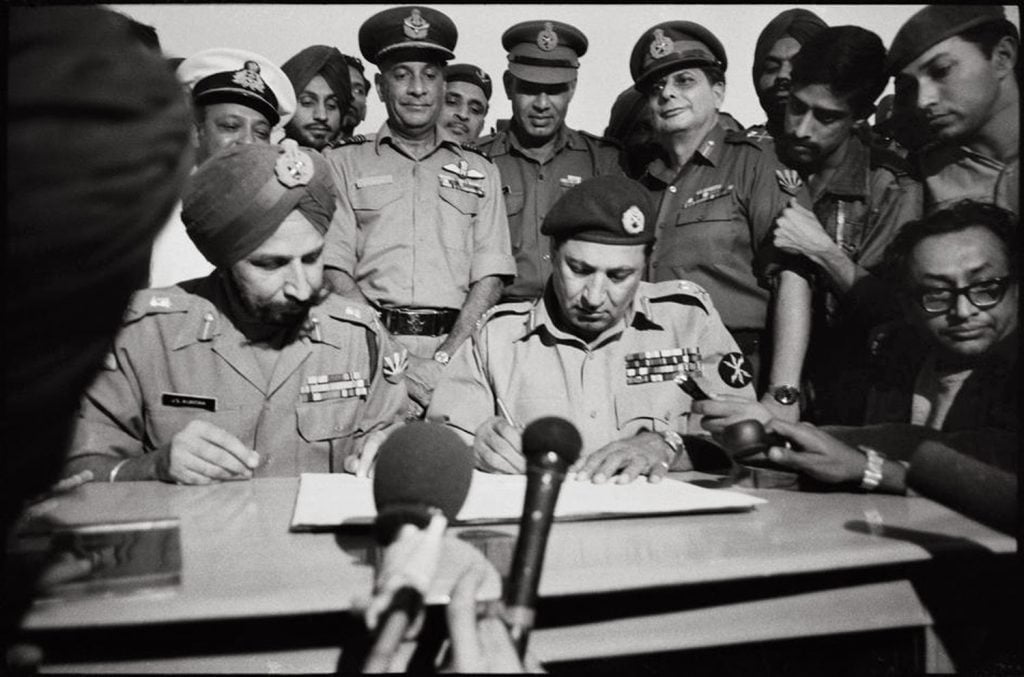
Any independent voice within the state providing an alternate narrative is promptly silenced by the Pakistani deep state. Eminent diplomats, reputed journalists and even politicians have faced the wrath of the Pakistani Inter-Services Intelligence (ISI) and have been forced into exile.
The Inter-Services Public Relations (ISPR) and Its Hand In Complete Media Censorship
The Pakistani army’s media perception wing, the notorious Inter-Services Public Relations (ISPR) runs an uber-sophisticated ‘psyops’ campaign on their countrymen. The DG-ISPR creates the facts they want their people to see. The dubious public information wing of the army is the sole media regulatory authority in Pakistan with any resolute power. Censorship is rampant! According to Hiten Lav, a retired army officer who has served with elite National Security Guards (NSG),
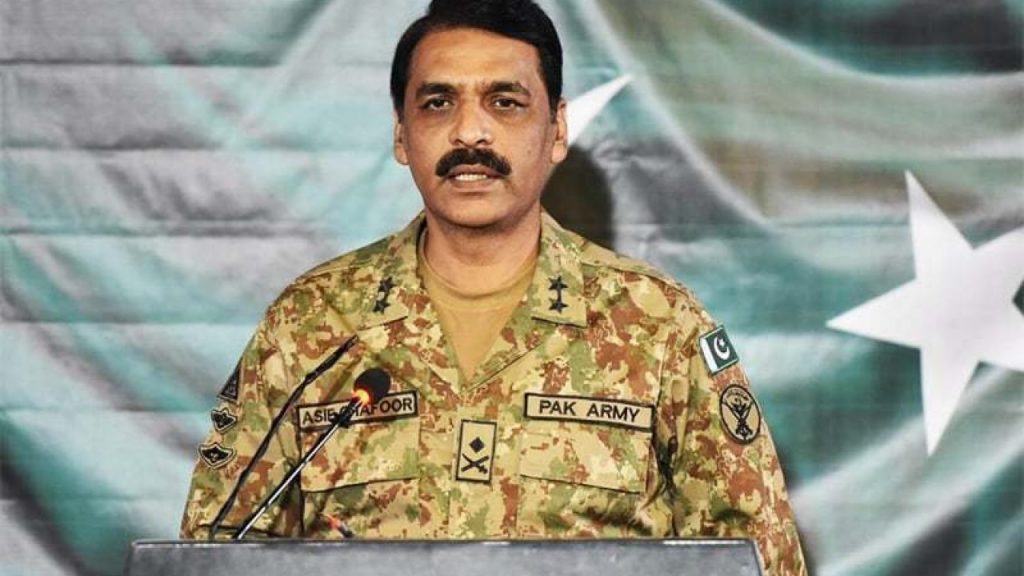
“Any news about the army which is not officially released by the Pakistani army, cannot be published by any media house.”
There have been numerous cases where large-scale media giants, for instance, Geo TV and the Jang group were lulled into submission, following the wrath of the ISPR!

Examples Of The Deep states Control On The Flow Of Information
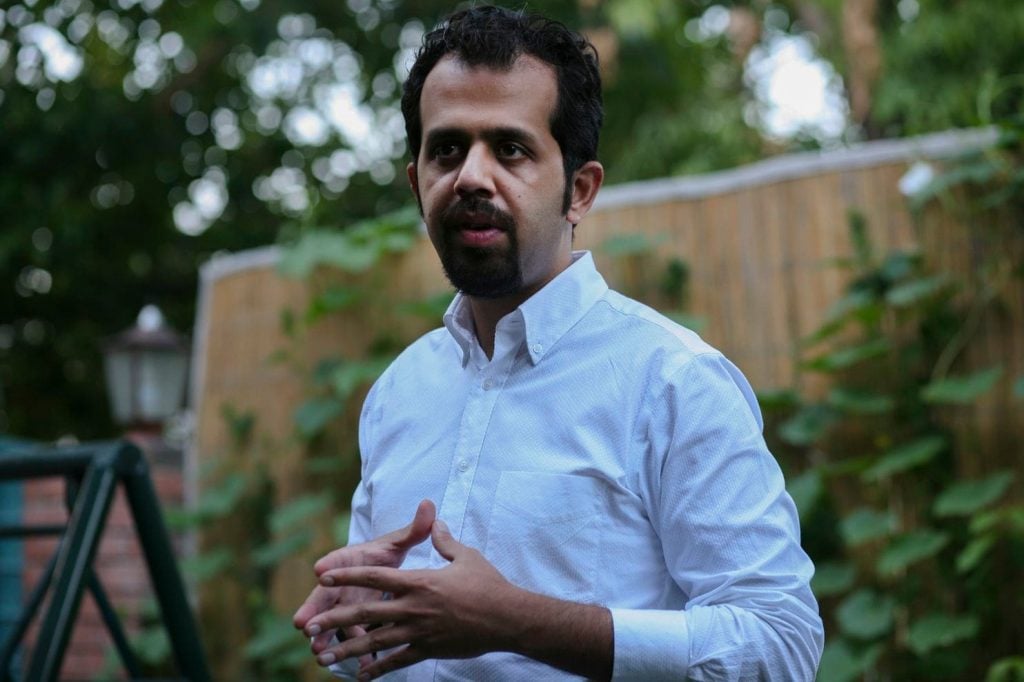
- Intelligence operatives from the Pakistani ISI grabbed Taha Siddique, an internationally renowned Pakistani journalist in a snatch operation. The journalist was beaten and threatened with death, for publishing a news article which did not tow the Pakistani security establishments line. The Pakistani reporter had to flee the country and remains in exile, for standing up for the truth.
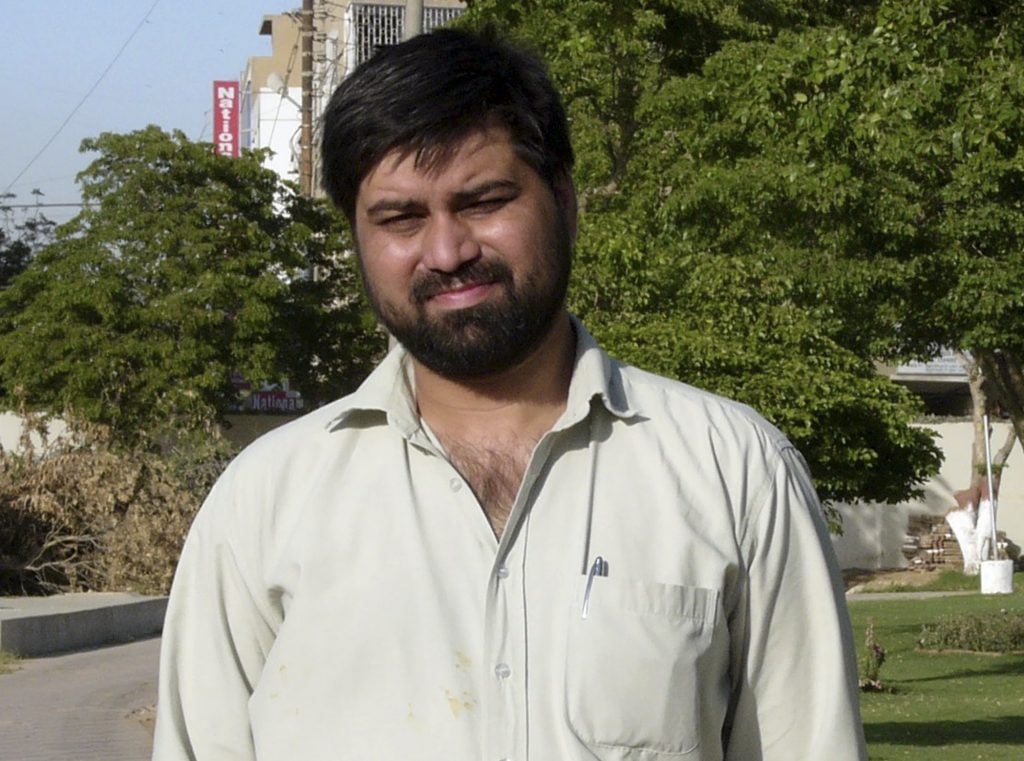
- Syed Saleem Shahzad was a Pakistani investigative journalist who was allegedly killed by the Pakistani Intelligence. The reputed journalist had written extensively for leading European and Asian media. Shahzad had served as the Pakistan Bureau Chief of Asia Times Online and Italian news agency Adnkronos. He was found dead in a canal in North-east Pakistan, showing signs of torture, a day after he was kidnapped. Shahzad was investigating a story of Jihadism in the Pakistani military. The journalist had written to the media freedom NGO reporters without borders, citing an immediate threat to his life by the state.
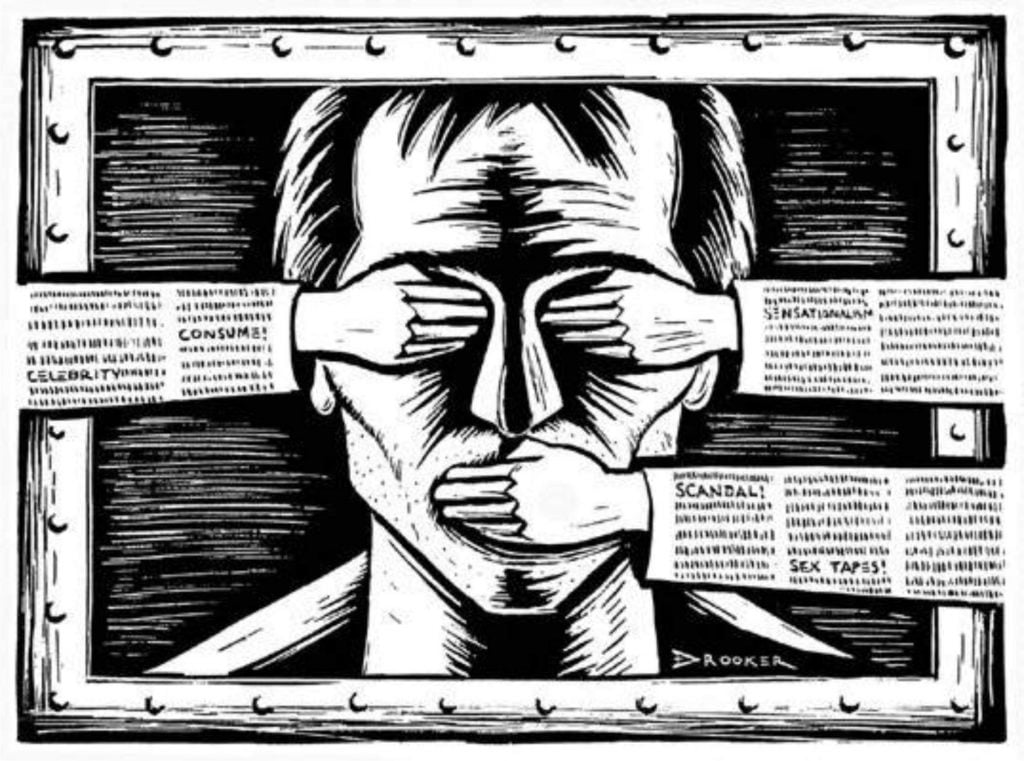
There is a complete media blackout when it comes to news pertaining to defence and security, “Unless it is released by the ISPR” says the former Indian commando. So, put things in context, If ten Pakistani soldiers lose their lives in a border skirmish with Indian troops, then the news of their ‘martyrdom’ will not be known to their countrymen, as the ISPR will never reveal it, and the media won’t dare to report it.
Changing The Circumstances Of Military Deaths
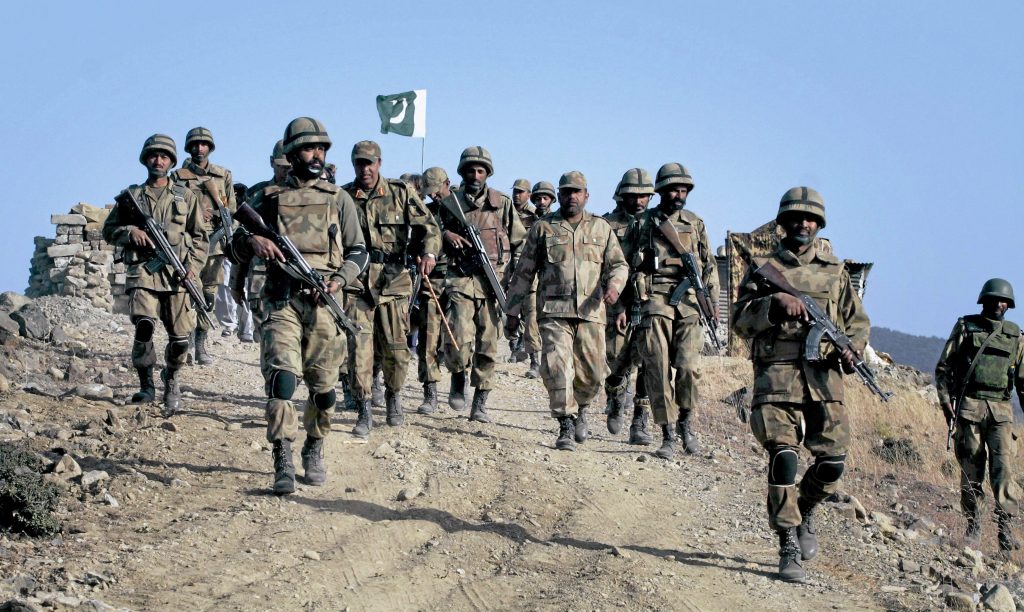
“hide its casualties against India.”
The nature of slain Pakistani soldiers deaths while in service of his country is often altered, to preserve the notion of Pakistani military invincibility against India. Often times, soldiers who are killed in firing or cross border operations across the Line of control with Indian forces are shown as having lost their lives in different actions. These officers and soldiers are shown to have been killed in border skirmishes with Afghanistan, counter-terror operations in Baluchistan, Waziristan or the Swat valley. Since the nature of military deaths in Pakistan cannot be scrutinised, it easy to manufacture the circumstances resulting in casualties. These are part of deliberate containment efforts by the ISPR to
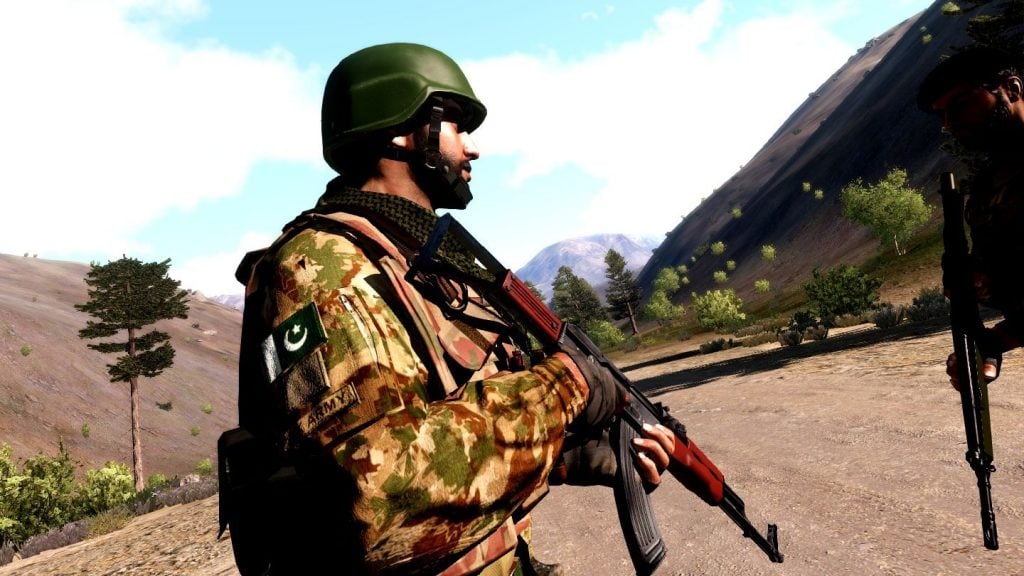
There are absolutely no chances of a news leak. If a leak is so much as suspected, the Pakistani security establishment takes immediate action against the journalist or the media house the reporter works for.
Pakistan’s Strict Burial Procedures
The Pakistani army is hugely secretive about the burial of their martyred soldiers. The bodies of Islambabads fighting men are seldom sent to their native villages. In a rather crude practice, the soldiers are usually buried in designated ‘graveyards for martyrs’ located near every army cantonment. The last rites are so closely shielded, that only immediate family are allowed.
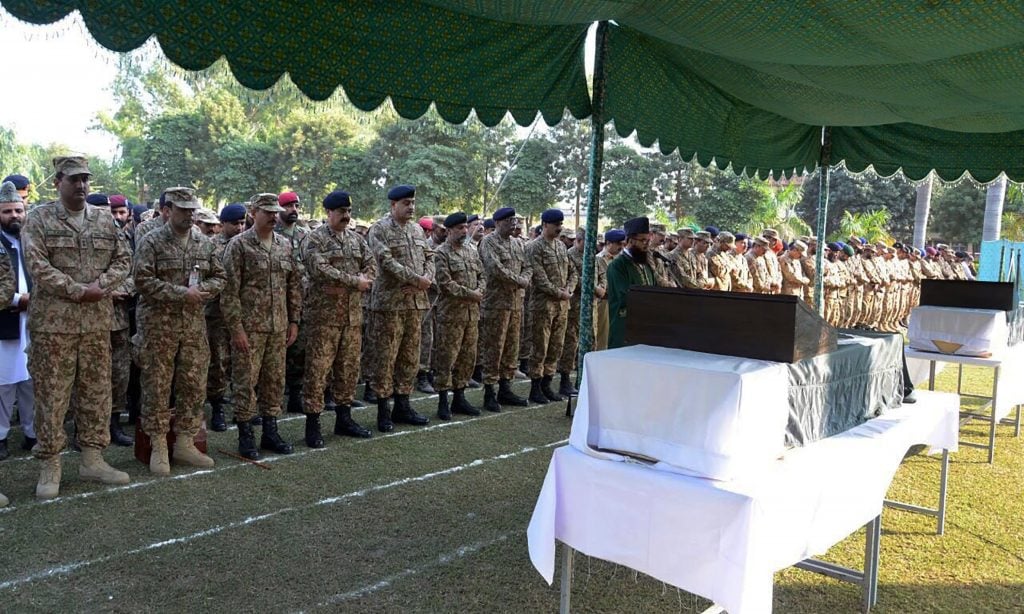
“Every time a soldier gets killed, his family members are taken into confidence, pressurised, and compelled to follow the instructions of the Pakistani army.”
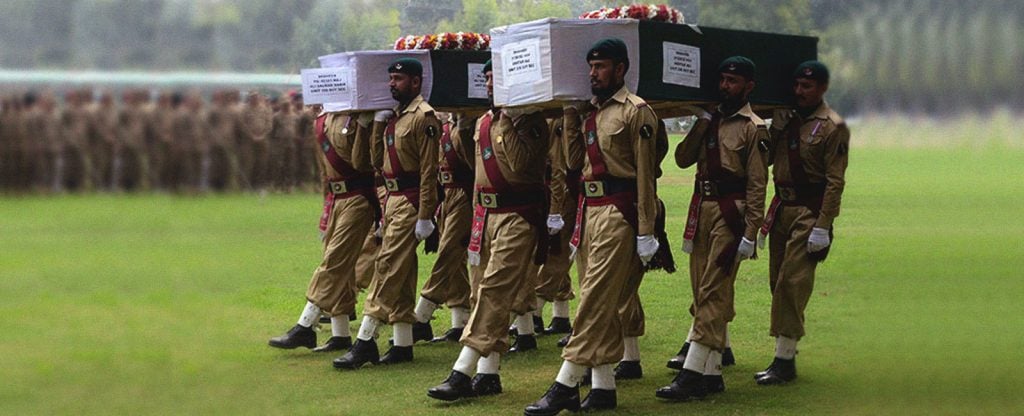
says the former black cat commando. “No politician or common public is invited to the funeral.” furthermore “No cameras or media persons are invited except for the cameraman of the Pakistan army,” says retd Colonel Lav.
The Pakistani Army is Not Answerable To The Parliament
The Pakistani army is commonly referred to as “an army with a country” by distinguished people around the world and it is an open secret that the military establishment reigns supreme. The civilian government is merely a decoration which does the army’s bidding.
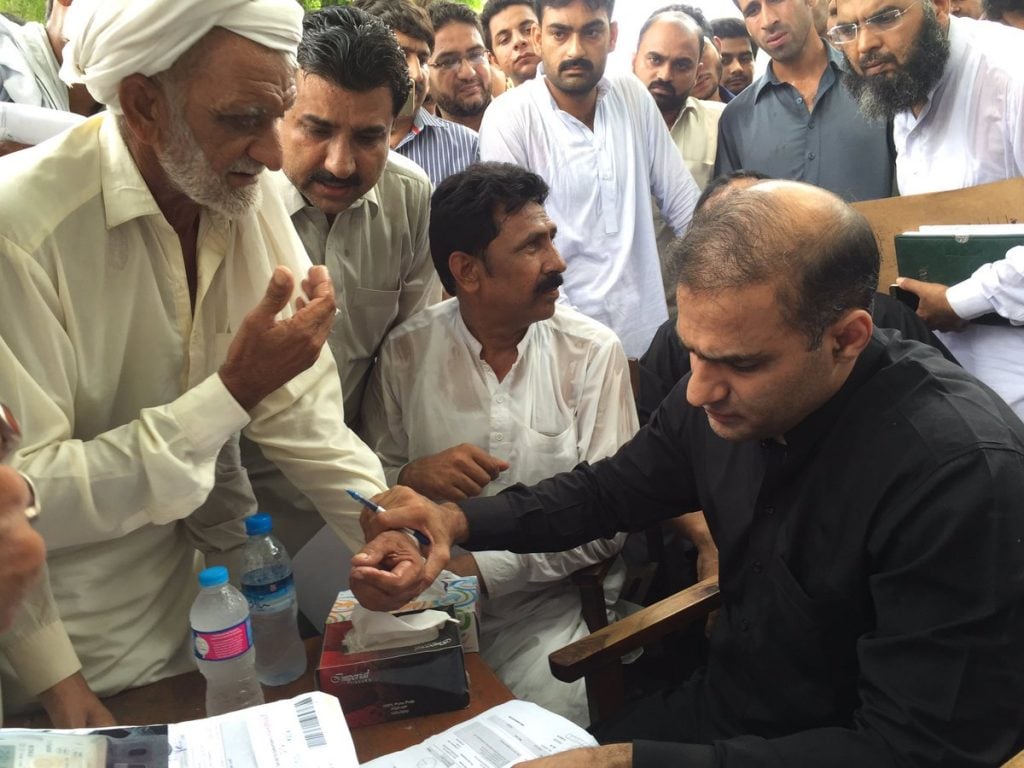
In 2017, Mr Abid Sher Ali, a politician who served as Pakistan’s minister for water and power informed the Pakistan Parliament, that he had written a letter to the General Headquarters in Rawalpindi (GHQ Rawalpindi), which is the real nerve centre of Pakistan. The Pakistani minister requested the details of Pakistani soldiers Killed in Action (KIA) along the Line of Control (LOC). The reply from the Pakistan army was. “The number of soldiers killed cannot be disclosed due to security reasons” the response further stated,
“We do not want our enemy to know how many soldiers laid down their lives.”
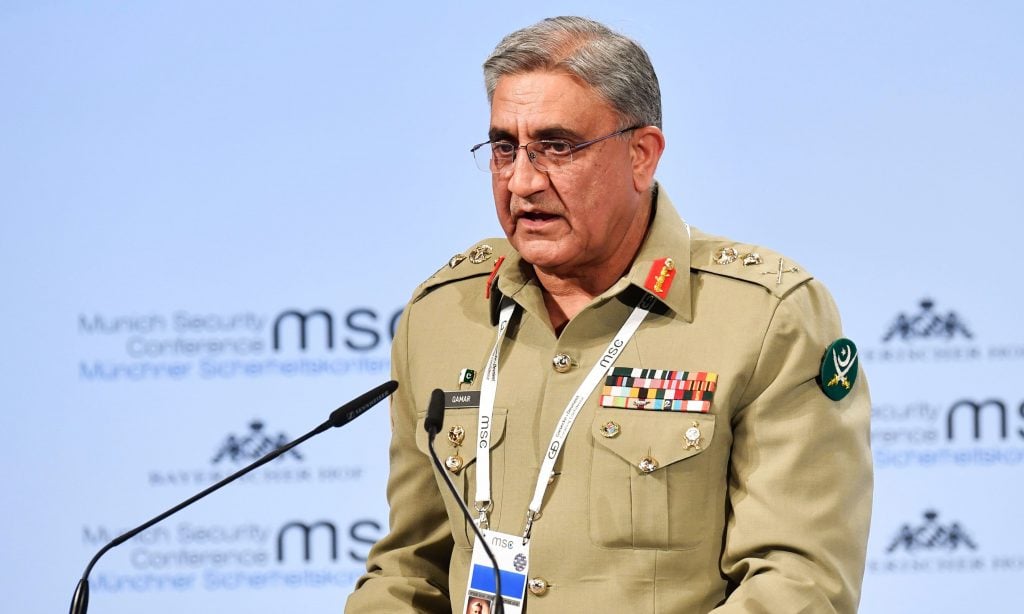
The numbers of soldiers killed in action (KIA), barring a few exceptions are part of the publically available information in any democratic country and civilised nation.
Pakistan is insulting their armed forces
says Colonel VN Thapar, father of Kargil War hero Capatain Vijayant Thapar (Vir Chikra)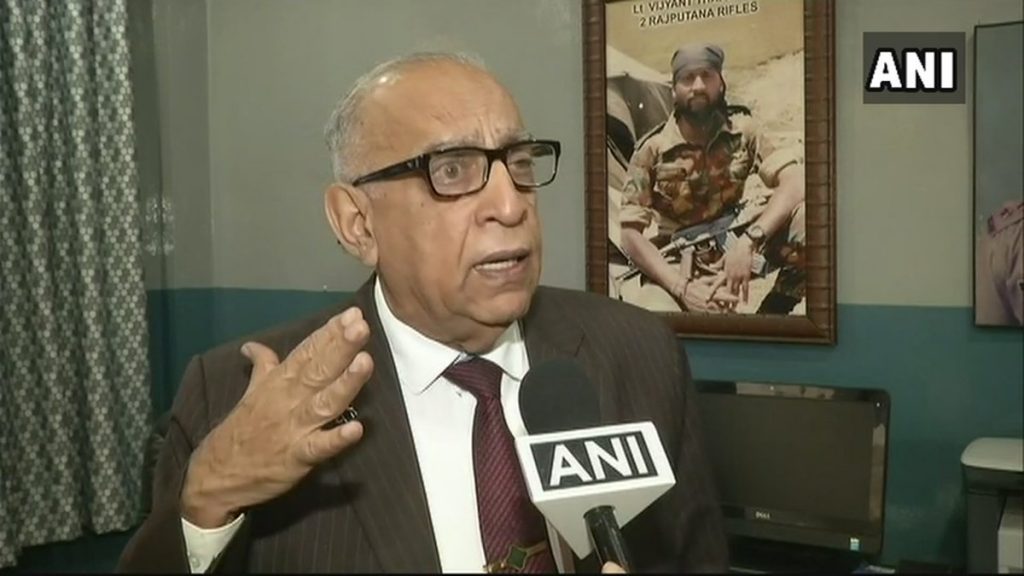
The Pakistani Defence Establishment Lacks a Moral Fibre
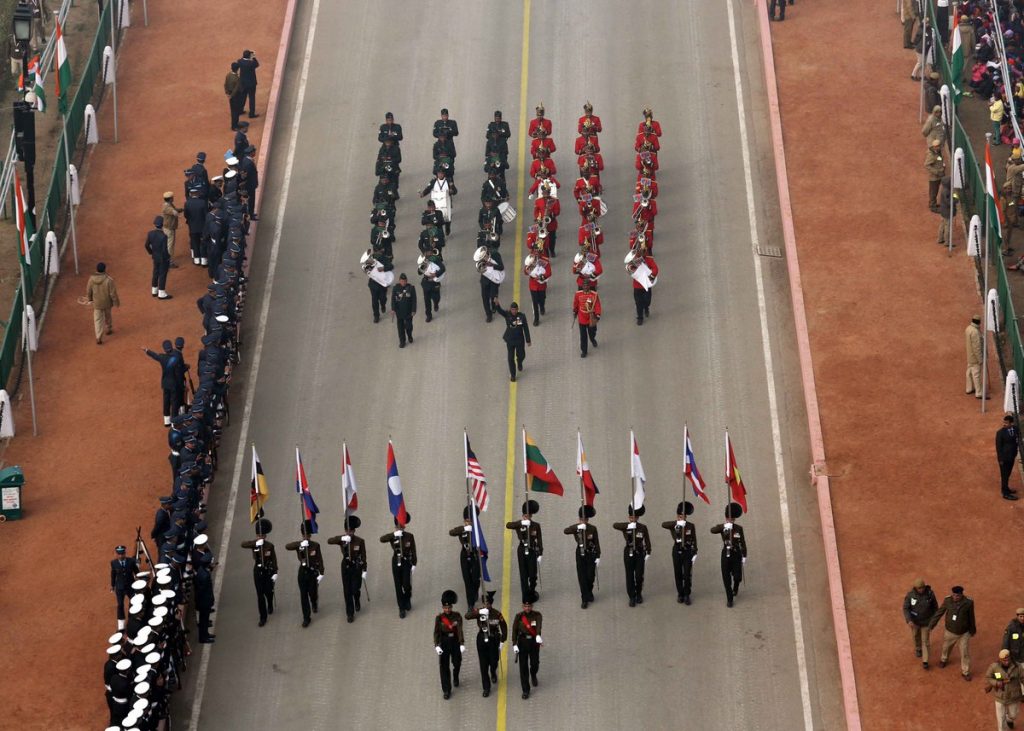
Pakistani army personnel, regardless of the questionable nature of the types of operations they are ordered to carry out, are professional fighting men, who deserve to treated as much by their own country. It is an absolute shame that these soldiers have to be buried by the enemy while their own government does not accept them as soldiers, owing to some delusional sense grandiosity. No professional army with a moral fibre disowns its own men, on such a routine basis. On a positive note the Pakistani army, in perhaps a historic event, raised the white flag to claim two of their dead, killed in cross border firing. While such a move is a step in the right direction, it does not for even a bit, make up for the institutionalised criminal neglect of their soldiers for two decades.

